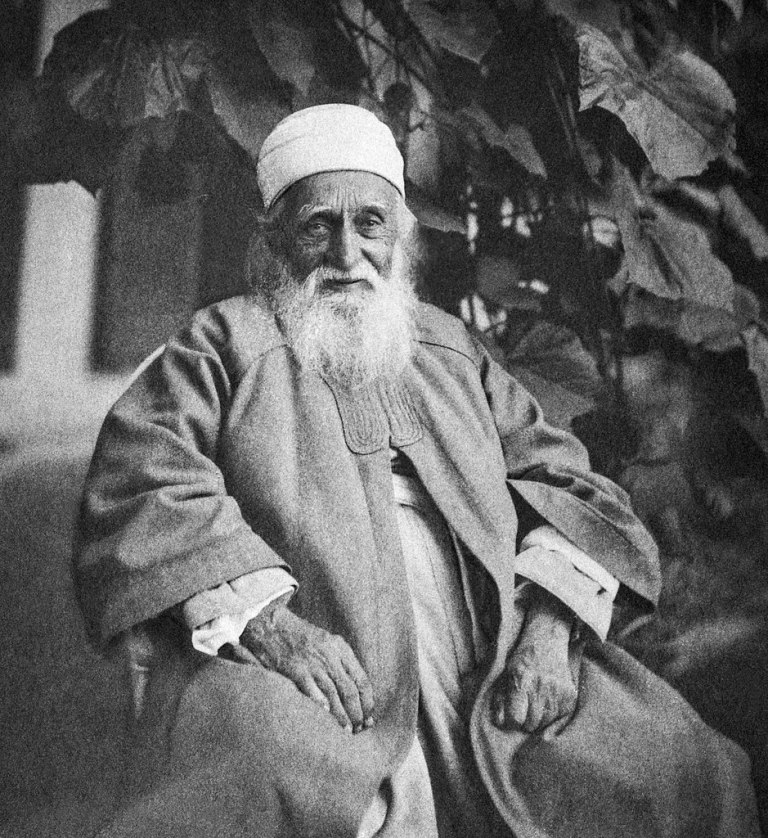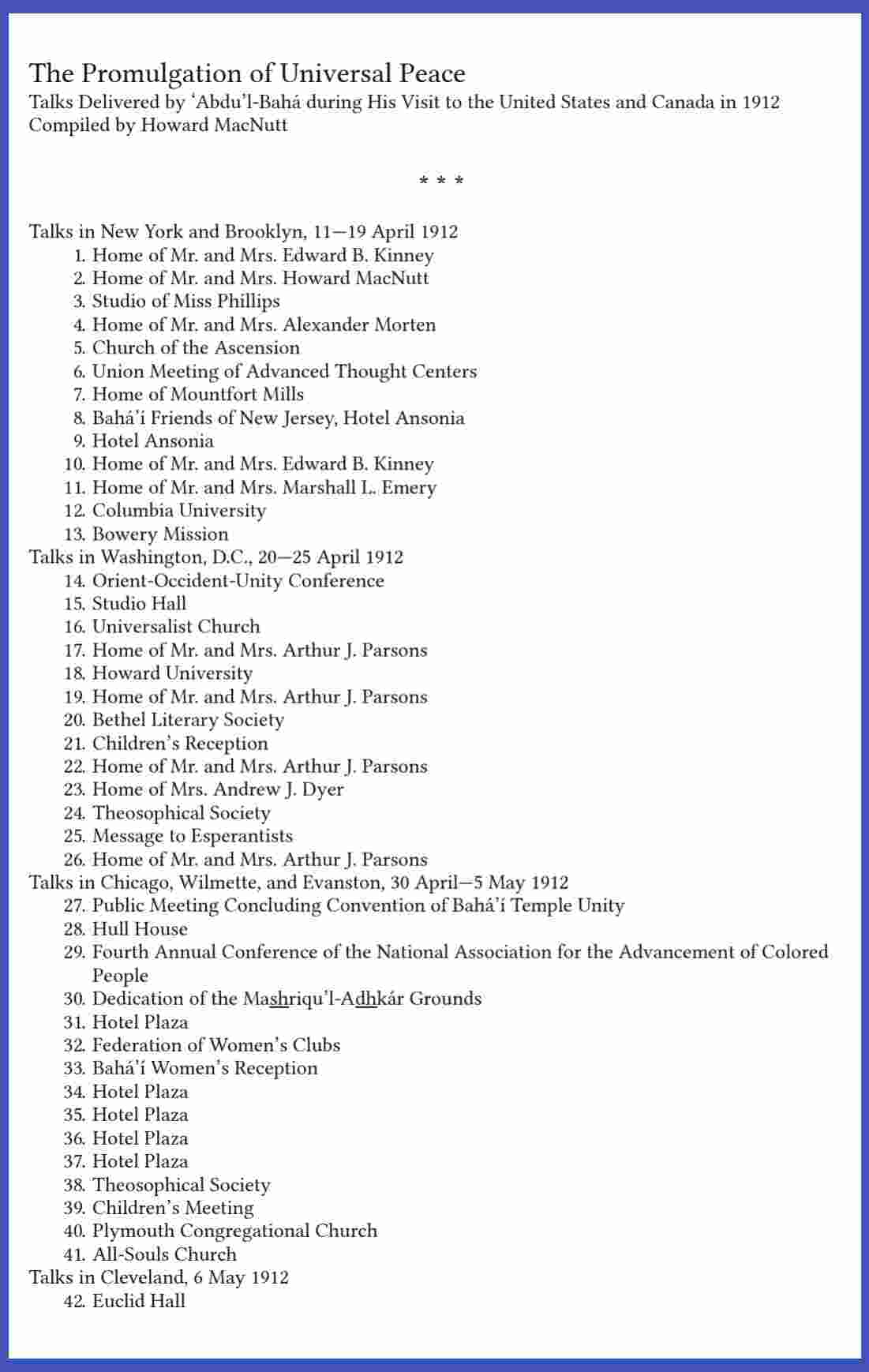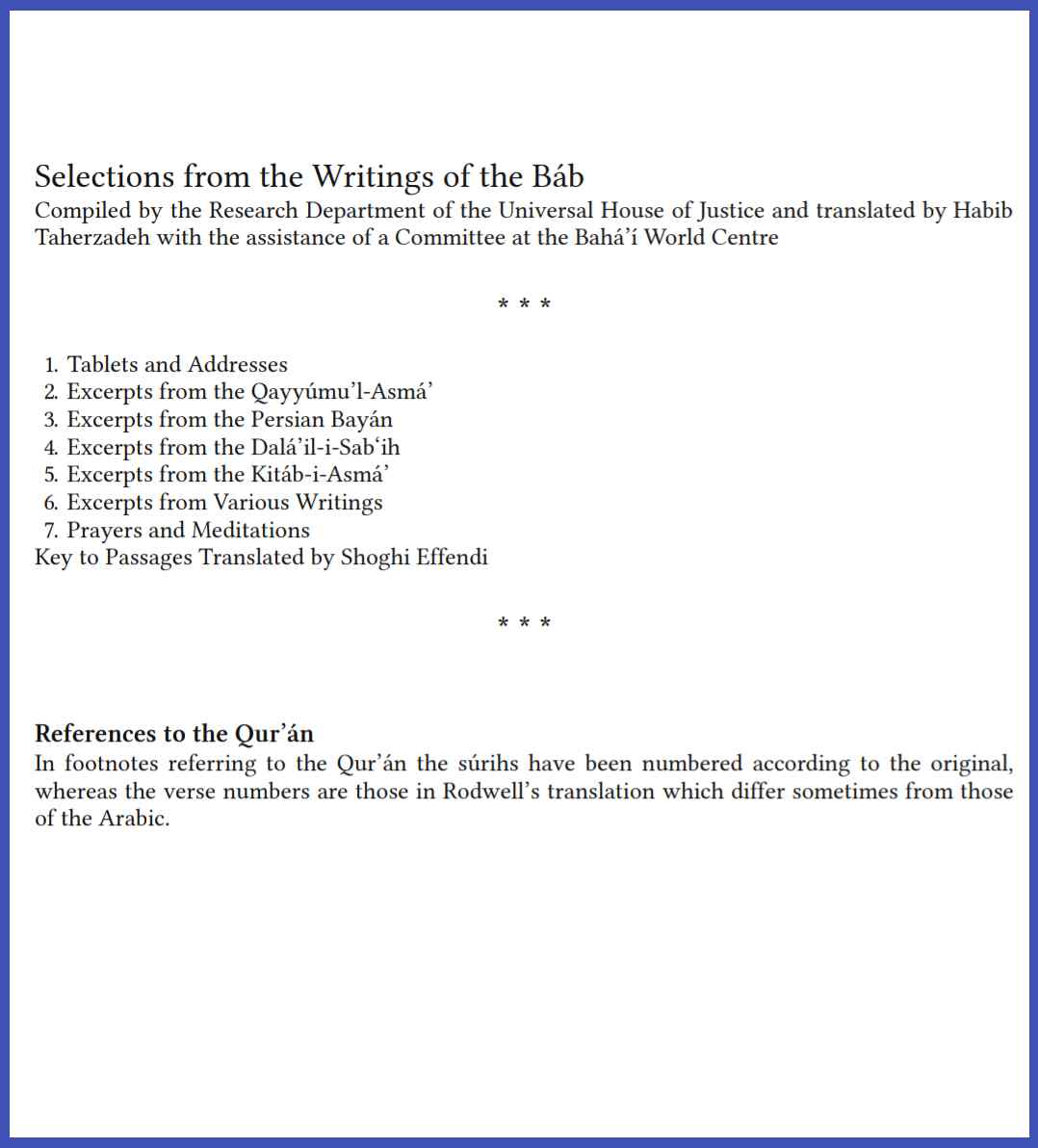Bahá’í
Baháʼí is a relatively new religion that was established in the 19th century in Iran. However, most of its followers now live outside of Iran. The exact number of followers is not known. It is estimated that there were about 6 million in 2010. This is a list of the followers in the top 5 countries in 2010:
(1) India -- 1,898,000
(2) United States -- 513,000
(3) Kenya -- 423,000
(4) Vietnam -- 389,000
(5) Congo -- 283,000
Below are pictures of Baháʼí's Lotus Temple in New Delhi, India, and World Center in Israel:


This is a brief history of Bahá’í as told by its followers:
In the middle of the 19th century, there was a young merchant in Iran who announced that he was the bearer of a message destined to transform the life of humanity. His mission was to prepare the way for the coming of a second messenger from God, greater than himself, who would usher in an age of peace and justice. He took the name “The Báb”, meaning “the Gate” in Arabic. His followers were therefore known as Bábís. The Báb was later put in jail and then executed in Iran. His followers secretly brought his remains to present-day Israel. His tomb is located in Haifa, Israel.
One of his followers, Mirza Husayn-‘Alí, turned out to be the claimed second messenger. In a 1848 gathering of Báb's followers in Badasht, a village in the northeast of Iran, he took the name Bahá’u’lláh, meaning the “Glory of God” in Arabic. As a leading supporter of the Báb, he was put in a dungeon in 1852. He said that it was in this dungeon that he was chosen by God to bring to humanity a new message. After about four months in the dungeon, he and his family were exiled from Iran and sent to Badhdad. At the request of the Shah of Iran to the Ottoman Sultan, in 1863 Bahá’u’lláh was sent to Constantinople and then Adrianople. He was later sent to a Mediterranean prison city of ‘Akká in 1868, where he spent the rest of his life. When he passed away in 1892 he designated his eldest son ‘Abdu’l-Bahá as his successor and head of the Bahá’í Faith.
Unlike his father, ‘Abdu’l-Bahá was able to travel extensively. He traveled to Egypt, England, United States, Canada and many countries in Europe. He spread the Baháʼí faith far outside of Iran and surrounding areas. He died in 1921 and appointed his eldest grandson, Shoghi Effendi, as the Guardian of the Bahá’í Faith. Shoghi Effendi unexpectedly died after a brief illness in 1957 in London under conditions that did not allow for a successor to be appointed. The faith is now governed by the Universal House of Justice, which is a nine-member body elected every five years by the entire membership of all national Bahá’í assemblies.
This is a portrait of ‘Abdu’l-Bahá:

This is a picture of the House of Justice in Haifa, Israel:

These are some of the teachings of the religion:
(1) God, the Creator of the universe, is all-knowing, all-loving and all-merciful. Just as the physical sun shines on the world, so the light of God is shed upon all creation. Through the ages God has sent Divine Messengers — among them Abraham, Krishna, Zoroaster, Moses, Buddha, Jesus Christ, Muḥammad, and, in more recent times, the Báb and Bahá’u’lláh — to cultivate humanity’s spiritual, intellectual and moral capacities.
(2) Humanity, having passed through the ages of infancy and childhood, now stands at the threshold of its collective maturity, the hallmark of which will be the unification of the human race in a global civilization.
(3) Faith and reason are attributes of the human soul through which insights and knowledge can be gained about the physical and the spiritual dimensions of existence. Faith and reason together make it possible to discover the powers and capacities latent in individuals, and in humanity as a whole, and enable people to work for the realization of these potentialities.
(4) There is no inherent conflict between science and religion. The harmony of science and religion is one of the fundamental principles of the Bahá’í Faith, which teaches that religion, without science, soon degenerates into superstition and fanaticism, while science without religion becomes merely the instrument of crude materialism. Taken together, science and religion provide the fundamental organizing principles by which individuals, communities, and institutions function and evolve. When the material and spiritual dimensions of the life of a community are kept in mind and due attention is given to both scientific and spiritual knowledge, the tendency to reduce human progress to the consumption of goods, services and technological packages is avoided.
(5) One pivotal principle of the Bahá’í Faith is the oneness of the entire human race. This means the abolition of all forms of prejudice; the equality of men and women, the two wings on which the bird of humankind is able to soar; the introduction of compulsory education; the adoption of a universal auxiliary language; and the abolition of the extremes of wealth and poverty..
To learn more about the religion, you can read:
The Promulgation of Universal Peace, which are talks delivered by ‘Abdu’l‑Bahá during his visit to the United States and Canada in 1912;

Selections from the Writings of the Báb, which was compiled by the Research Department of the Universal House of Justice.
